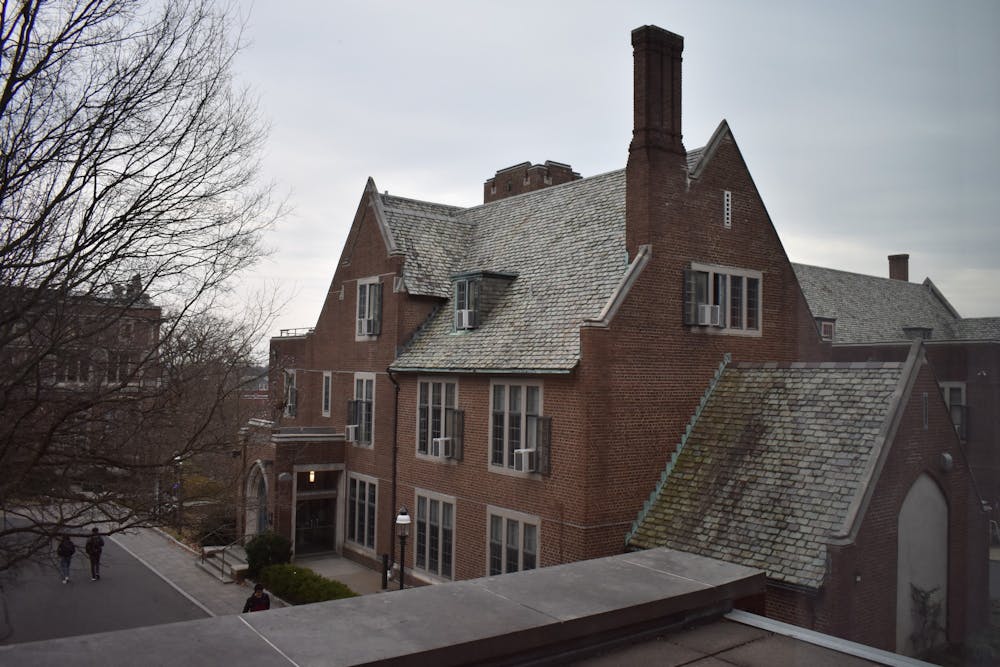As the COVID-19 pandemic stretches on, University organizations and mentor groups are exploring how best to adjust annual programming and resources to fit the nature of the virtual environment. For this year’s online Safer Sexpo, Peer Health Advisers (PHAs) presented a COVID-adjusted curriculum that navigated personal desire in a socially distant context, with a new “emphasis on solo sex,” according to PHA and Safer Sexpo coordinator Maricar Almeda ’22.
University Health Services (UHS) Health Promotion Specialist Janine Mascari explained that the Sexpo is an “annual interactive program facilitated by the student Peer Health Advisers as a part of the First Year Residential Experience program for first-year students.”
“We know that folks enter college with a wide variety of backgrounds and experiences, and have not necessarily received comprehensive sex education,” she wrote in an email to The Daily Princetonian. “The program aims to provide a foundation for everyone, regardless of whether they identify as sexual, currently engage in sexual behaviors, or plan to in the future.”
This year, the Sexpo included a raffle students could compete to enter, with one of three potential prizes: free University gear, “goodie bags” filled with condoms and lube — like those given to students at past in-person Sexpos — or a “sex toy.” The type of sex toy was not specified.
Winning students who opted for this choice were sent a link by Mascari to a variety of toys and were asked to send a link back with the one they wanted, Almeda explained.
“The new thing was the sex toy,” she said. “That was something everyone was excited about … and the frosh, a lot of them were really excited about.”
Over the course of the four-day programming, the raffle saw 16 student winners. The winners were chosen at random through a “name-picker site” and their information was kept fully private. Students could then reach out to Mascari, who would coordinate shipping and order the prize of the student’s choice.
Mascari wrote that the group decided to offer the raffle as a means to “increase participation and encourage completion of the program in its entirety.”

“It is important that we have evaluation data from our programs, so that we can assess if our learning objectives were met and have feedback for future improvements,” she wrote in an email. “We also know Zoom fatigue is real and this is a program that some folks might have been reluctant to participate in or could feel was not relevant to them.”
Students were only able to enter the raffle, if they so chose, after completing the evaluation, according to Roshini Balasubramanian ’22, another PHA.
Whether due to the raffle incentive or not, Mascari reported that “turnout to the event was good, and the feedback has been largely positive.”
Raffle shipments were not limited to domestic students, but included any first-year who chose to participate, Almeda explained.

This year, the program was split into four different topics: communication, personal desire, STI/STD treatment, and campus resources — emphasizing values like “safer sex practices, communication skills, and willingness to engage in protective behaviors,” Mascari explained.
“With a virtual semester and the ongoing pandemic, we wanted to make sure to reflect the reality that people are engaging less frequently (if at all) in in-person sex behaviors and that COVID transmission is a potential risk if people do engage in person, and to cover safer alternatives,” she added.
In addition to the three primary dates split between the six residential colleges, PHAs also offered one make-up date.
PHAs running the program utilized existing curricula with adjustments, using tools like presentation slides, breakout rooms, role plays, trivia games, and more, according to Mascari. PHAs made all resources available before and after the programming so that students could learn independently as well.








